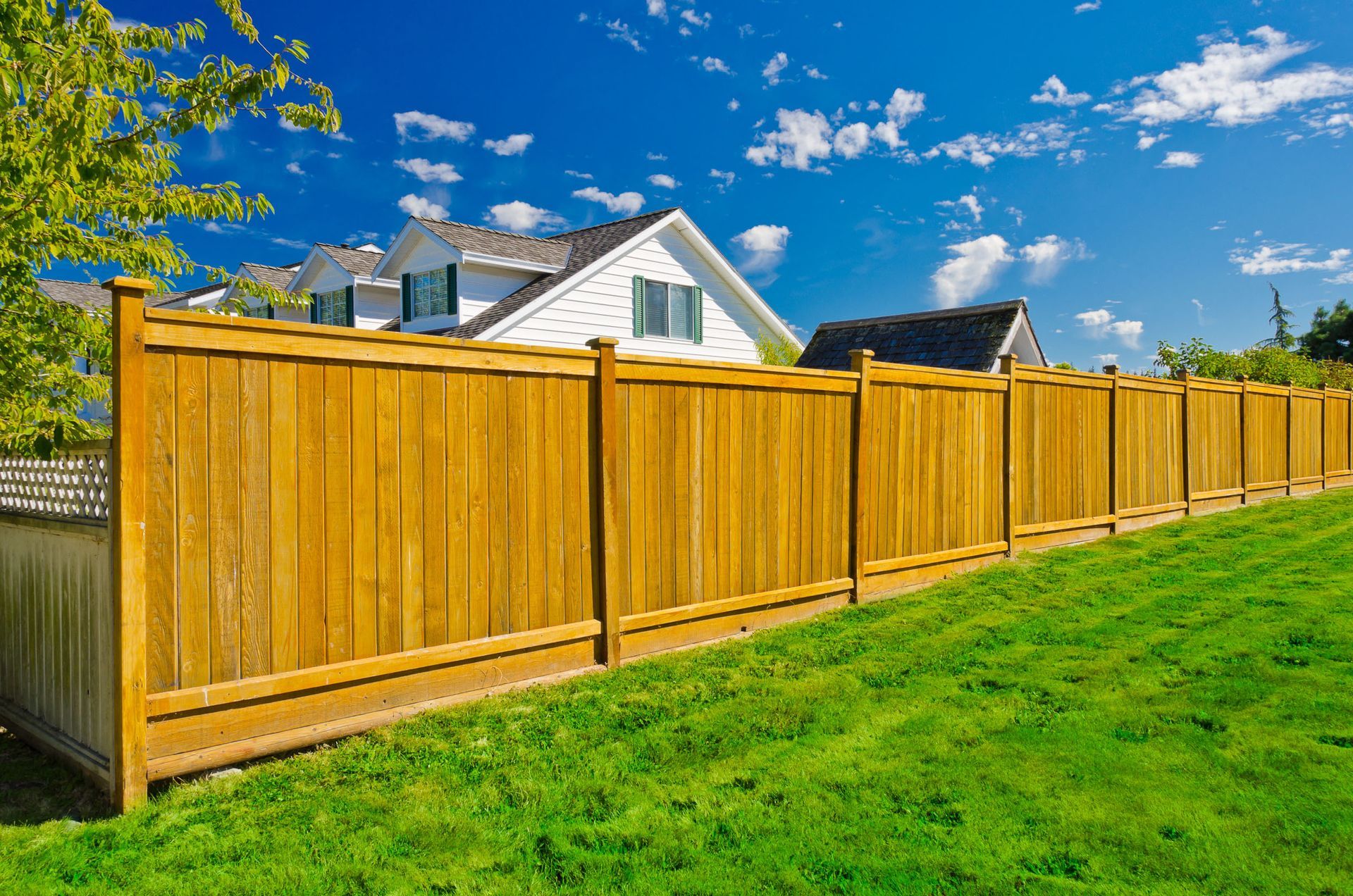Featured
Severe weather condition can be a substantial difficulty for homeowner, especially when it concerns protecting secure fencing structures from damage. Choosing the best secure fencing material and layout ensures your building remains safe and visually pleasing, also in severe climates. From extreme warmth to hefty snow or high winds, here are the best fencing alternatives tailored to different severe weather problems.
Fencings for Windy Environments.
Fencings for Damp and Humid Climates.
Fences for Snowy and Cold Climates.
![]()
![]()
Fencings for Hot and Arid Climates.
Aspects to Think About for Weather-Resilient Secure Fencing. Resilient Structures: Firmly anchor fencing posts in concrete to supply extra security versus extreme conditions such as high winds or hefty snow. Weather-Resistant Coatings: Applying sealers, powder coverings, or galvanization can expand the life of timber and steel fencings. Correct Spacing: For gusty areas, consider open styles such as chain-link or picket fencings to decrease resistance. Material Long Life: Select products like vinyl, light weight aluminum, or composite that are crafted to sustain weather extremes with very little maintenance. Advantages of Choosing Weather-Appropriate Fencing. Purchasing weather-resistant fence saves cash in the future by minimizing fixing and replacement prices. It additionally ensures your home remains visually appealing and secure, regardless of the climate difficulties.
Conclusion. For properties in extreme weather, choosing the ideal fencing material and layout is vital to guarantee longevity and functionality. Whether you're handling high winds, heavy rains, snow, or scorching warmth, choices like vinyl, composite, aluminum, and rock secure fencing offer trusted solutions. Partnering with professional service providers to evaluate your building's specific requirements will assist you make an informed decision and attain a long-lasting, weather-resistant fencing.
Fencings for Windy Environments.
- Chain-Link Fences. Chain-link fence is an outstanding alternative for gusty locations due to its open layout, which enables wind to travel through without putting in significant stress on the structure. This lessens the danger of collapse and lowers upkeep requirements.
- Shadowbox Fences. Shadowbox fences, made of alternating wood panels, integrate personal privacy and wind resistance. The layout enables wind to go through while maintaining a solid look.
- Aluminum Fences. Aluminum fencings are lightweight, sturdy, and able to withstand solid winds. They're additionally low-maintenance and immune to deterioration, making them a flexible alternative for various environments.
Fencings for Damp and Humid Climates.
- Plastic Fences. Plastic secure fencing is non-porous, meaning it will not take in wetness or establish mold and mildew, mold, or rot. It's an excellent option for locations with hefty rains or high humidity degrees.
- Compound Fences. Composite fence incorporates the all-natural look of timber with the toughness of plastic. It resists bending, splitting, and wetness damages, making it a strong competitor in damp climates.
- Steel Fences with Protective Coating. Steel fences treated with powder coverings or galvanization withstand rust and corrosion, making them appropriate for damp conditions.
Fences for Snowy and Cold Climates.
- Concrete or Stone Fencings. These products use unmatched toughness in cold climates. They are invulnerable to moisture and withstand the growth and contraction triggered by cold and thawing cycles.

- Plastic Fencings. Plastic fences are resistant and adaptable to fracturing in freezing temperature levels. They are additionally easy to clean after snow build-up.
- Pressure-Treated Wood Fences. Pressure-treated wood is particularly created to stand up to moisture and cold-related damage. It calls for regular maintenance to remain in good condition.

Fencings for Hot and Arid Climates.
- Light weight aluminum Fences. Aluminum stands up well to extreme heat and UV exposure without bending, fracturing, or fading. Its reflective surface area likewise aids it remain awesome.
- Plastic Fencings. Plastic fencing is a dependable choice for arid climates, as it stands up to warmth damage and does not dry or crack imaginable.
- Bamboo Fences. Bamboo is environmentally friendly and naturally heat-resistant. With correct treatment, it can withstand completely dry environments and keep its toughness and color.
Aspects to Think About for Weather-Resilient Secure Fencing. Resilient Structures: Firmly anchor fencing posts in concrete to supply extra security versus extreme conditions such as high winds or hefty snow. Weather-Resistant Coatings: Applying sealers, powder coverings, or galvanization can expand the life of timber and steel fencings. Correct Spacing: For gusty areas, consider open styles such as chain-link or picket fencings to decrease resistance. Material Long Life: Select products like vinyl, light weight aluminum, or composite that are crafted to sustain weather extremes with very little maintenance. Advantages of Choosing Weather-Appropriate Fencing. Purchasing weather-resistant fence saves cash in the future by minimizing fixing and replacement prices. It additionally ensures your home remains visually appealing and secure, regardless of the climate difficulties.
Conclusion. For properties in extreme weather, choosing the ideal fencing material and layout is vital to guarantee longevity and functionality. Whether you're handling high winds, heavy rains, snow, or scorching warmth, choices like vinyl, composite, aluminum, and rock secure fencing offer trusted solutions. Partnering with professional service providers to evaluate your building's specific requirements will assist you make an informed decision and attain a long-lasting, weather-resistant fencing.
Latest Posts
Find Out Save Big on Car Maintenance with Montclare Auto Repair’s Special Deals
Published May 27, 25
1 min read
Explore WyHy Federal Credit Union – Essential Perks for Your Financial Success
Published May 27, 25
1 min read
Discover WyHy FCU – Key Advantages for Your Future
Published May 24, 25
1 min read